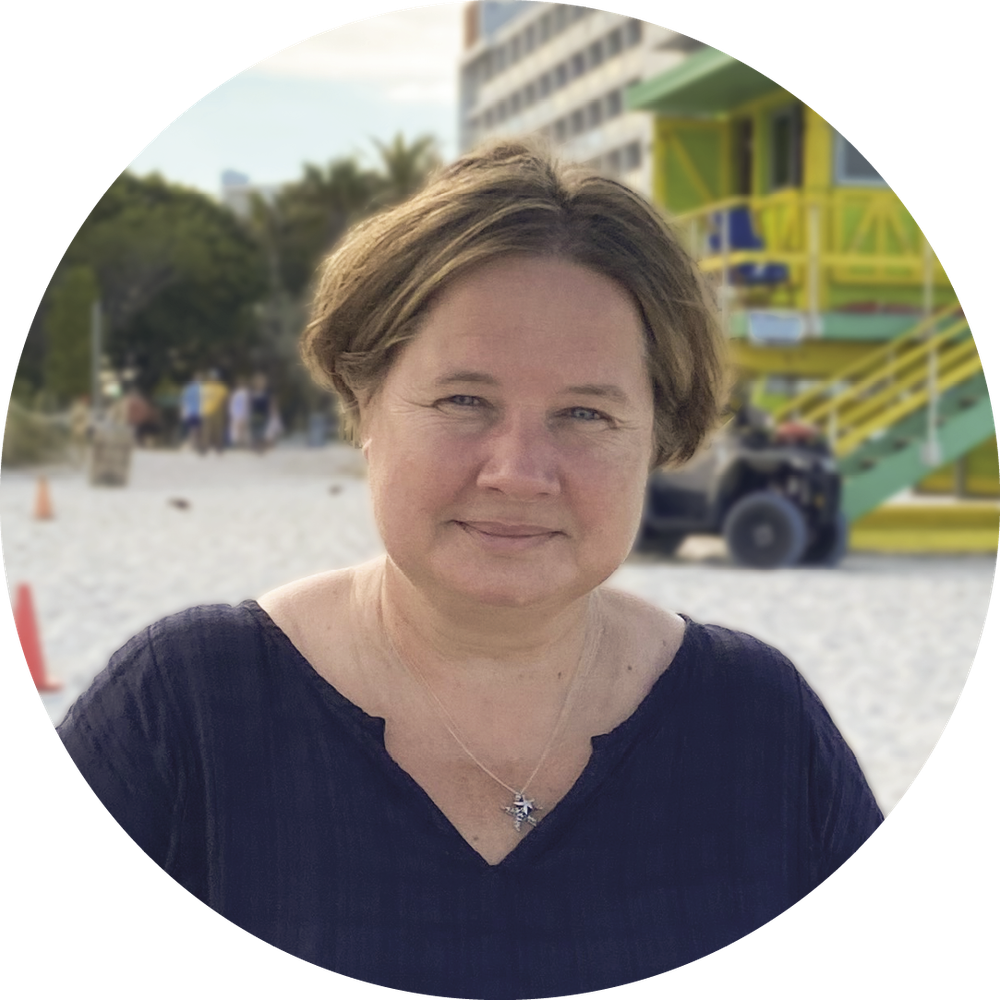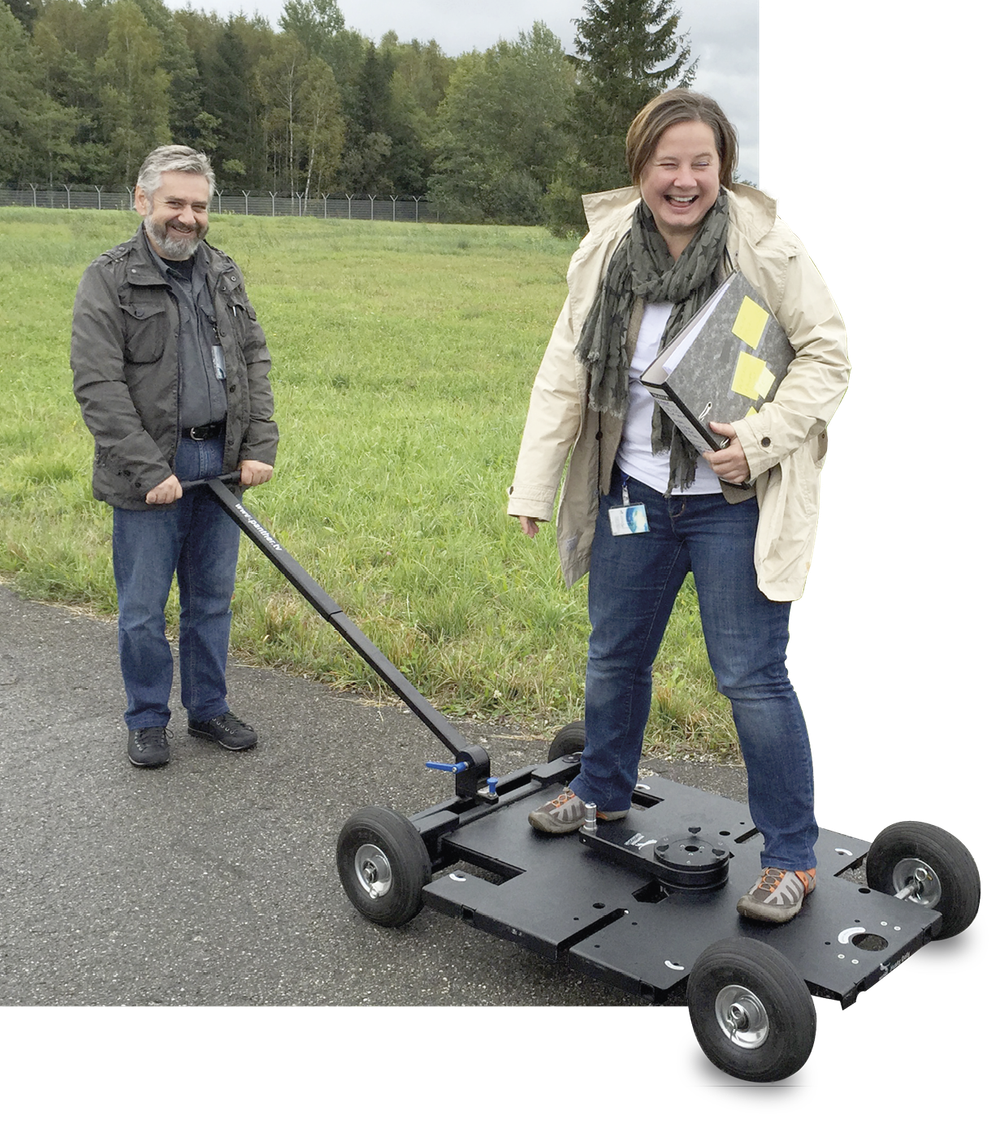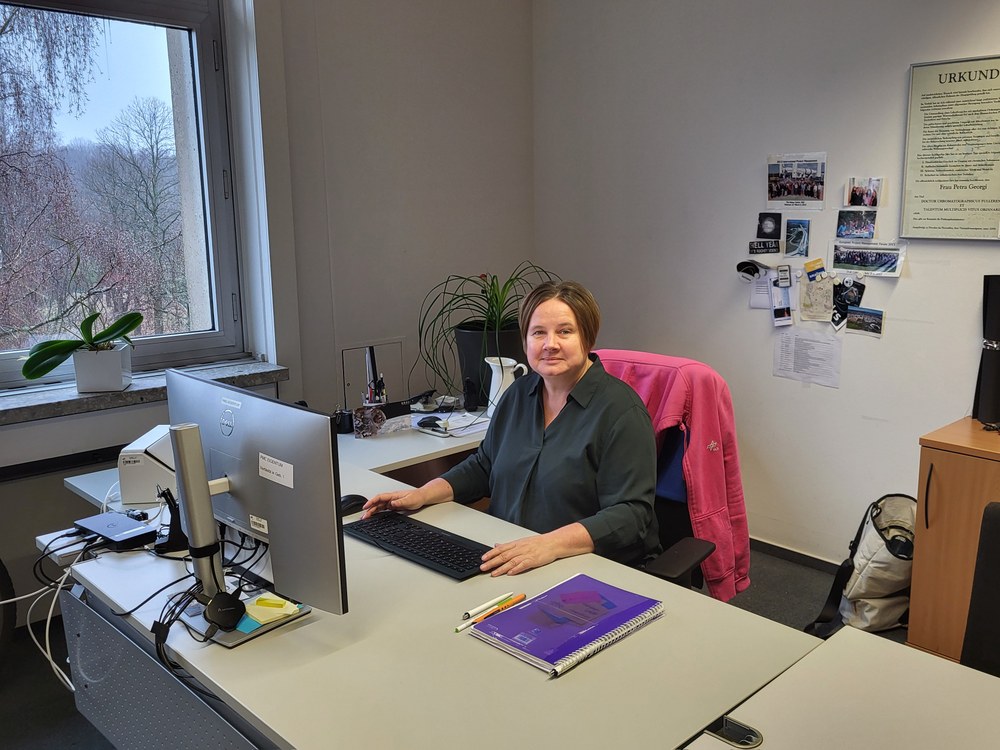The Facilitator

Sometimes a person's career path takes the most surprising twists and turns. That was certainly the case for Petra Georgi. In 2007, after studying at a technical college to become a stateaccredited dietitian and earning a doctorate in chemistry, she began working at DLR in Oberpfaffenhofen in 2007, and went on to join the Project Management Support Department in Cologne in 2009. As head of this department, she acts as an interface between research and administration on the one hand and external project partners on the other. In our interview, she explains how her career took a decisive turn following a holiday on the Atlantic coast and what she has in common with a rugby player.
You come from Dresden and once attended the Yuri Gagarin Secondary School. Did that pave your way to DLR?
You might well think that, but it is not the case. I only attended the first grade at the Yuri Gagarin Polytechnic Secondary School in Lunow. There was a space club, but I was too young to join. That said, I have always been very interested in constellations. Later, at boarding school in Königs Wusterhausen, I even met the first German to fly to space, Sigmund Jähn, at a round table discussion.
How did you forge a career for yourself after finishing school?
In the ninth grade, I applied to study at a medical technical college and became a dietitian. I realised that it was not really the right path for me, so I took the entrance exam for a university of applied sciences and went on to study chemical engineering. For my thesis, I went to the Leibniz Institute for Solid State and Materials Research in Dresden. I later completed my doctorate there and assisted researchers at the institute with submitting applications for third-party funding, managing applications, negotiating contracts and everything that goes along with third-party funded projects.
Our job is to identify possible hurdles and remove them.
And how did you end up at DLR?
During a summer holiday on the Atlantic coast, I was browsing through job advertisements and saw one from DLR that seemed just made for me. They were looking for a department head for Contract Management in Oberpfaffenhofen. I applied and got the job!

What are your tasks in your current role in project management support in Cologne?
We assist our researchers and engineers with applying for complex projects. We take a close look at the grant, contract and general conditions. People who are not specialised in this often do not understand the finer details and are not aware of the ramifications of certain requirements. Our job is to identify possible hurdles and remove them.
What do you consider to be particularly important when negotiating contracts?
As a publicly financed institution, our 'framework' conditions differ from those of companies. I focus on ensuring that both contracting parties are happy with the outcome of the negotiations. After all, the collaborations should run as smoothly as possible over several years and in some cases even decades.
You often work at an international level where different legal frameworks can lead to complications. Can you give us an example from your own experience?
In the United States, there are federal laws as well as statutes and regulations that vary from state to state. The US federal government may attempt to enforce certain regulations relating to subcontractors, even though the law is entirely different in the state or location outside the US in which the contract is to be performed. In this case, we have to negotiate the contract in such a way that it complies with German law and can be implemented at our end.
Do you currently have a favourite among the projects that your department is overseeing?
The one that springs to mind is LUNA, the training facility for astronauts who will be landing on the Moon in the future. The European Space Agency (ESA) and DLR are currently collaborating on the construction of the LUNA Analog Facility, a training centre for Moon missions in Cologne. I am fascinated by the ideas that the scientists are looking to implement there and the conditions they need to set up for this to happen.
Earlier, you mentioned that some of the projects you have initiated have been running for decades. Can you name one of them?
Again, it is a space project – the European Columbus module, which has been part of the International Space Station ISS since 2008. The Columbus Control Centre is located at the DLR site in Oberpfaffenhofen, and I am part of the support team that handles the contractual and commercial aspects.

Does a new contract have to be drawn up every time a German experiment is carried out in the Columbus laboratory?
No. We have a kind of framework agreement with ESA which is extended on a rolling basis for as long as the ISS is in operation. This covers individual research campaigns. However, if large additional expenses arise, we draw up a contract change notice with ESA to cover them.
You once described your role using terms from the world of rugby.
The 'team' I play in is made up of researchers, procurement officers and lawyers. I see myself as a 'loose forward', or 'lock' – a player who works away in the background. Those in the 'front row' are right in the middle of the fight, but I am one of those supporting from behind to make sure my team goes in the right direction.
Thank you very much for this fascinating conversation and good luck with driving new projects!
The DLR-FORSCHtellungsgespräch podcast is produced by Daniel Beckmann, Andreas Ellmerer and Antje Gersberg. They all work in DLR Corporate Communications. An article from the DLRmagazine 175.
